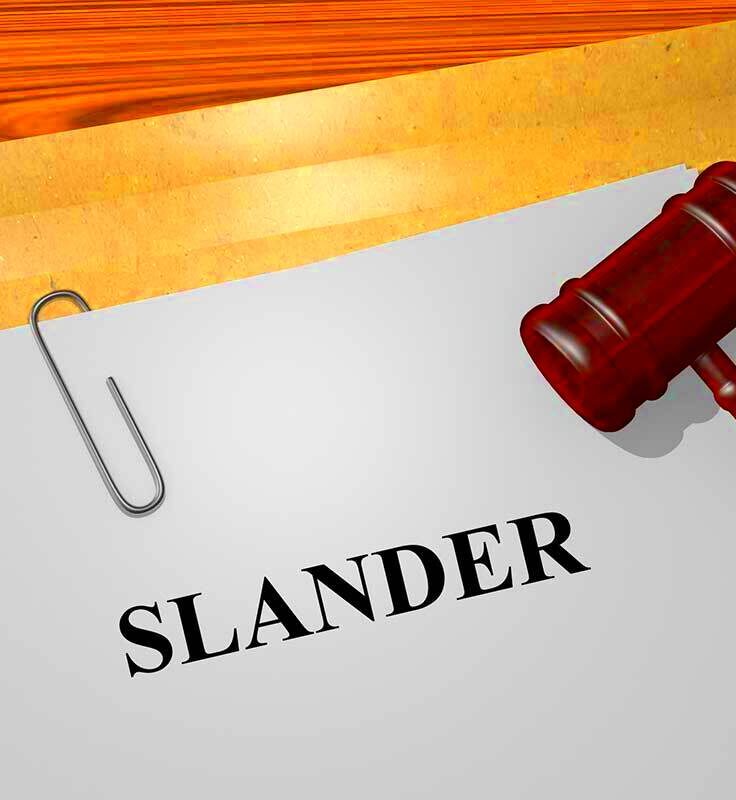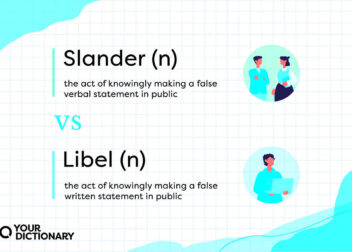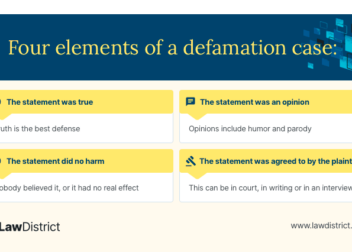Colorado’s Slander Liability Laws Explained
Slander is a form of defamation that occurs when someone makes false spoken statements about another person, damaging their reputation. Unlike libel, which refers to written statements, slander is transient, meaning it exists only in speech. In Colorado, understanding the nuances of slander is essential, especially if you believe you’ve been a victim of false claims. This blog post will guide you through the intricacies of Colorado’s slander laws, helping you navigate your rights and the legal landscape.
Understanding Colorado’s Slander Laws
Colorado has specific laws regarding slander that protect individuals from false statements that can harm their reputation. Here are some key points about these laws:
- Definition of Slander: Slander involves making false statements about someone that can lead to damage to their reputation.
- Proof Requirement: The person claiming slander must prove that the statement was false and harmful.
- Public Figures: Public figures face a higher burden of proof. They must demonstrate that the false statement was made with “actual malice.”
- Statute of Limitations: In Colorado, the statute of limitations for filing a slander claim is one year from the date of the defamatory statement.
It’s crucial to understand these laws to protect yourself or take action if you have been a victim of slander. If you’re facing slanderous remarks, consulting with a legal professional is advisable.
Elements of Slander in Colorado
To succeed in a slander claim in Colorado, several elements must be established. These include:
- False Statement: The statement made must be proven false. Truth is an absolute defense against slander claims.
- Publication: The statement must be made to a third party. It can be spoken to another person or broadcasted publicly.
- Fault: The plaintiff must show that the defendant was at least negligent in making the statement, particularly if the plaintiff is a private individual.
- Damage: The statement must have caused harm, whether it be to the individual’s reputation, emotional distress, or loss of income.
Understanding these elements is essential for anyone considering a slander lawsuit. Each element plays a critical role in determining the outcome of a case. If you believe you have been the victim of slander, it’s vital to gather evidence and seek legal advice to ensure you meet all necessary criteria.
Defenses Against Slander Claims
When facing a slander claim, several defenses can be raised to counter the accusations. Understanding these defenses is crucial for anyone involved in a potential slander case. Here are some common defenses used in Colorado:
- Truth: If the statement made is true, it is not considered slanderous. Truth is an absolute defense, meaning that if you can prove the statement is factual, you cannot be held liable.
- Opinion: Statements that are clearly opinions rather than assertions of fact are typically not actionable. For instance, saying “I think he is a bad person” is less likely to be slander than claiming “He stole money.”
- Privilege: Certain statements made in specific contexts may be protected by privilege. For example, statements made during judicial proceedings or legislative debates may not be actionable.
- Consent: If the person who claims to be defamed consented to the publication of the statement, they may not have a valid claim for slander.
- Public Interest: Statements made about public figures or matters of public interest may also be protected, especially if they are made without actual malice.
It’s essential to discuss your case with a legal professional to determine which defenses might apply to your situation and how best to proceed.
Consequences of Slander in Colorado
The consequences of slander can be significant for both the person making the statement and the victim. Here’s a look at what might happen if someone is found guilty of slander in Colorado:
- Legal Penalties: While slander is a civil matter, those found liable can face monetary damages, which may include compensation for emotional distress, lost wages, and reputational harm.
- Reputation Damage: The individual making the slanderous statement may suffer reputational harm themselves, leading to loss of relationships, job opportunities, and community standing.
- Injunctions: Courts may issue injunctions, preventing the person from making similar statements in the future.
- Criminal Charges: In rare cases, slanderous statements can lead to criminal charges, especially if they are tied to harassment or other criminal behavior.
Being aware of these consequences can encourage individuals to think carefully before making statements about others, as the fallout can be severe and lasting.
How to Prove Slander in Court
Proving slander in court involves presenting a clear case that meets the necessary legal criteria. Here’s a step-by-step guide to help you understand how to effectively prove slander:
- Gather Evidence: Collect any evidence supporting your claim, such as witness statements, recordings, or documents that can validate your assertion of slander.
- Establish Falsity: You must show that the statement made about you was false. This might involve providing proof or evidence that contradicts the claims made.
- Demonstrate Publication: You need to prove that the slanderous statement was shared with someone other than yourself. This can include testimonials from witnesses who heard the statement.
- Show Fault: If you are a private individual, you need to demonstrate that the person who made the statement was negligent in verifying its truthfulness. For public figures, proving actual malice is required.
- Prove Damages: Finally, you must show that the slanderous statement caused you harm, whether that’s damage to your reputation, emotional distress, or financial loss.
Proving slander can be complex, so seeking legal assistance is advisable. An experienced attorney can guide you through the process and help ensure that your case is presented effectively.
Seeking Compensation for Slander
If you’ve been a victim of slander, you may be wondering how to seek compensation for the harm done to your reputation and emotional well-being. Here’s a guide to help you understand the process of seeking compensation for slander in Colorado:
- Identify Your Damages: Start by documenting the impact of the slanderous statement. This may include emotional distress, lost job opportunities, and damage to your personal relationships.
- Consult an Attorney: It’s essential to consult with a lawyer who specializes in defamation cases. They can guide you through the legal process, help you assess your case’s strength, and outline your potential compensation.
- Gather Evidence: Collect evidence to support your claim. This may include witness statements, social media posts, emails, or any other documentation that demonstrates the slanderous statement and its effects on your life.
- File a Lawsuit: If negotiations fail, your attorney may recommend filing a lawsuit. They will prepare the necessary documents and help you navigate court proceedings.
- Compensation Types: Compensation may cover various aspects, including:
- Economic Damages: These are quantifiable losses like lost wages or business opportunities.
- Non-Economic Damages: This may include compensation for emotional distress, humiliation, and damage to reputation.
Seeking compensation for slander can be a complex process, but with the right support and evidence, you can pursue justice and regain your reputation.
Frequently Asked Questions
Here are some common questions people have about slander and defamation in Colorado, along with straightforward answers:
- What is the difference between slander and libel?Slander refers to spoken defamatory statements, while libel pertains to written or published statements.
- How long do I have to file a slander claim in Colorado?You generally have one year from the date of the slanderous statement to file a claim.
- Can public figures sue for slander?Yes, but they must prove “actual malice,” meaning the statement was made with knowledge of its falsity or with reckless disregard for the truth.
- What damages can I recover from a slander lawsuit?You can seek compensation for economic losses, emotional distress, and damage to your reputation.
- What if the statement was made in a private conversation?For it to be considered slander, the statement must be shared with a third party. If it was only spoken to you, it may not qualify as slander.
If you have more questions, it’s best to consult with a legal professional who can provide specific guidance based on your situation.
Conclusion on Slander Liability in Colorado
Understanding slander liability in Colorado is essential for both individuals and public figures. Slander can have devastating effects on personal and professional lives, making it crucial to know your rights and the legal frameworks in place to protect you. Whether you’re seeking to prove slander or defend against a claim, being informed about the laws and potential consequences is key. Always consider consulting with a knowledgeable attorney to guide you through the complexities of slander cases.
Remember, if you’ve been wronged, you have options for seeking justice and compensation. The legal system is there to protect your rights and help you navigate the challenges that slander can bring.


